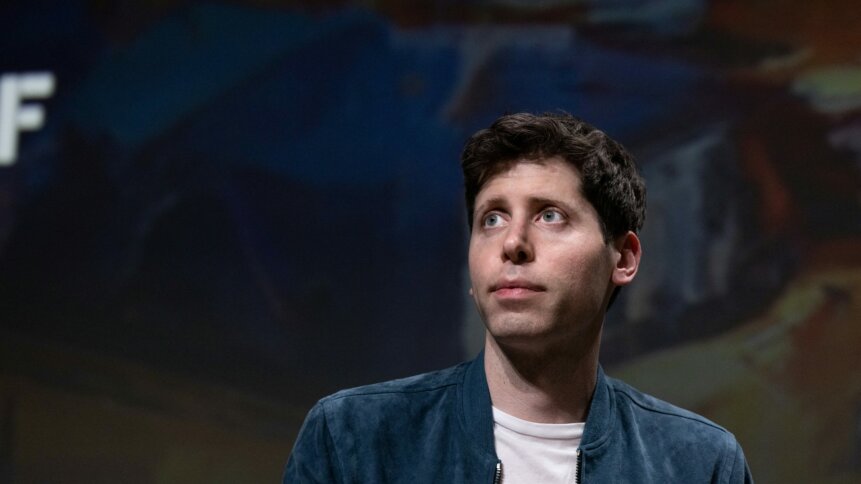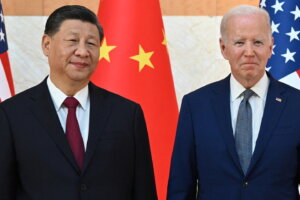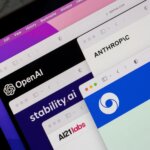OpenAI calls for collaboration with China on AI regulations

• OpenAI boss Altman on whiste-stop tour to discuss AI regulation.
• Calls for US-China collaboration on AI.
• Acknowledges the scale of the issue with large models.
The CEO of Open AI has been on a world tour to promote AI governance, and had recently made a virtual pit stop in China.
Although the US has been attempting to curtail China’s dominance in the artificial intelligence field, OpenAI boss Sam Altman underscored the importance of a collaboration between America and China, to mitigate the risks of AI systems.
The breadth and scope of Altman’s tour illustrates his influence over the AI regulation debate. Not too long after winning the hearts of lawmakers during his US Senate hearing and briefly clashing with European Union regulators, Altman once again made headlines for his stand on China.
“I really hope Chinese AI researchers will make great contributions here,” Altman told participants at the event hosted by the Beijing Academy of Artificial Intelligence.
As part of the Asia leg of Altman’s global goodwill tour to promote AI governance, the OpenAI CEO virtually spoke at a conference in China on June 10. “China has some of the best AI talents in the world, and fundamentally, given the difficulties in solving alignment for advanced AI systems, this requires the best minds from around the world,” he added.

Open AI boss Altman has his eye on collaboration with China. Source: JOEL SAGET / AFP
The Academy has always firmly positioned itself in the AI sector in China. The country’s Ministry of Science and Technology and Beijing’s local government support the Chinese non-profit.
Chinese speakers at the conference came from top universities and companies, including US-blacklisted telecom company Huawei Technologies, search giant Baidu and speech-recognition firm iFlytek.
In 2019, the US sanctioned iFlytek, saying it aided the Chinese government in surveilling ethnic Uyghurs and other Muslim minorities in Xinjiang. In the midst of the US efforts to contain the progress of China in AI through sanctions, the OpenAI CEO is choosing engagement. Since last October, the US has imposed sanctions on China to prevent it from accessing the most popular cutting-edge chips needed for AI development.
However, from various reports, Altman sounded unfazed about the escalating competition between Washington and Beijing to lead the technology. He emphasized the importance of collaboration between American and Chinese researchers to mitigate the risks of AI systems. “With the emergence of increasingly powerful AI systems, the stakes for global cooperation have never been higher,” Altman said, according to Bloomberg.

Relations between China and the US are frosty. Can OpenAI’s hope of collaboration succeed? Source:JOEL SAGET / AFP
Interestingly, Altman’s presence at the conference was welcomed with widespread cheers in the audience, even though ChatGPT is not officially available in China. According to some data, China now produces more high-quality research papers in the field than the US but still lags in “paradigm-shifting breakthroughs,” according to an analysis from The Brookings Institution.
The Chinese government has prioritized developing AI in recent policy statements while also pushing ahead with regulation to ensure it conforms to China’s heavily censored internet. On his global tour, Altman emphasized cautious regulation as European regulators consider the AI Act.

Is AI a fundamental property of matter, asks OpenAI’s Sam Altman.
The EU’s proposed ruling is considered one of the most ambitious plans globally to create guardrails to address the technology’s impact on human rights, health and safety, and tech giants’ monopolistic behavior. The proposed ruling in China significantly overlaps with the EU act but imposes additional censorship measures that ban generating false or “politically sensitive” speech.
Altman calls for coordinated international ruling on AI
Just a day before his virtual appearance at Beijing’s conference, Altman used a high-profile trip to South Korea to call for coordinated international regulation of generative AI. “As these systems get very, very powerful, that does require special concern, and it has a global impact. So it also requires global cooperation,” Altman said at an event in Seoul, ahead of a meeting with South Korean President Yoon Suk Yeol.
On the same day, President Yoon stressed the importance of international standards to prevent unwanted “side effects” related to platforms such as ChatGPT, saying there was a need to act “with a sense of speed.”











